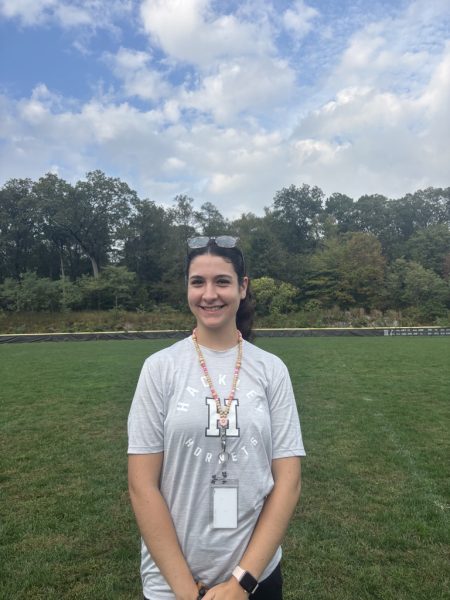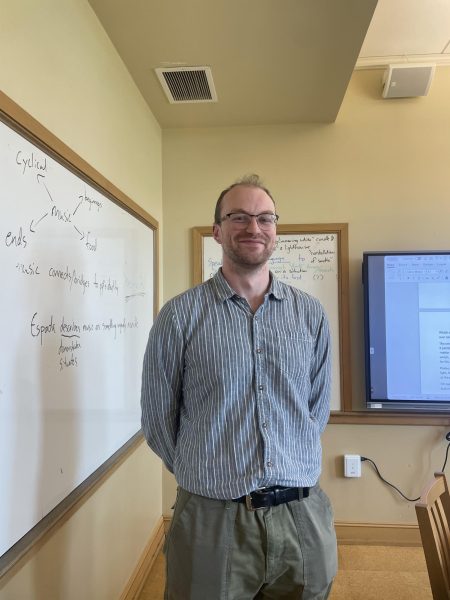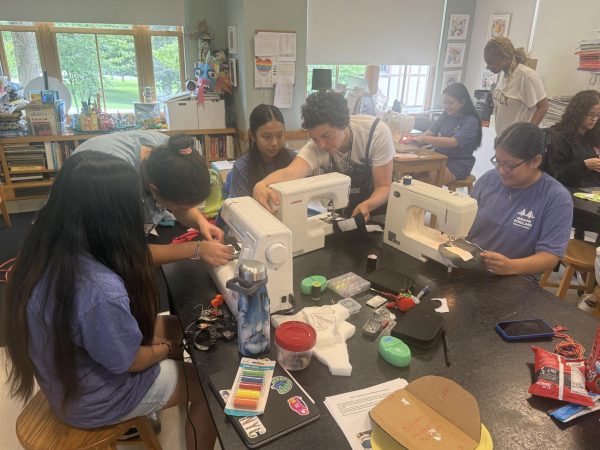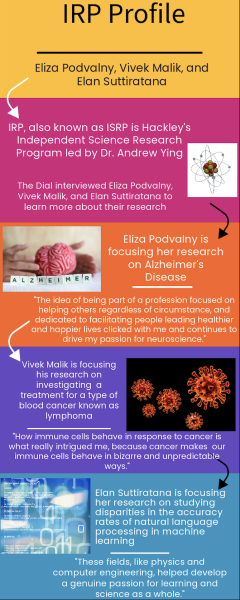The Data Struggle
Junior NJ Roc-Sennett’ IRP project is studying auditory prosody in relation to schizophrenia.
Schizophrenia, a serious mental disorder that affects a person’s ability to interpret reality properly, was a topic that piqued junior NJ Roc-Sennett’s interest and led her to learn more about it by enrolling in the IRP program.
“I had a family friend who struggled with schizophrenia and the treatments that they had to undergo were not good for the long term and they ended up passing away, so I just hope that whatever I can learn about this disease can help make a difference for people with this same affliction,” NJ said.
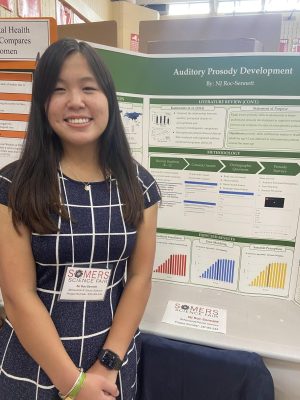
NJ presented her data results from her surveys thus far in the Somers Science Fair. Her surveys regard auditory prosody development and include tasks such as tone matching, sarcasm perception, and emotional recognition.
NJ is specifically studying auditory prosody, which is a person’s ability to detect emotions and sarcasm based on the tones of someone’s voice. She is hoping to analyze when the auditory prosody ability becomes as good as that of adults and how different it is to people with schizophrenia because of their struggle to recognize emotions. Her long-term goal is to figure out more about the connection between schizophrenia and auditory prosody and get insight into schizophrenia treatment.
The reason finding insight for treatment is so important is because, “current medications like antipsychotics are not good for the long term because they only treat symptoms and eventually you need to take medication for the side effects, so it’s not very effective for a disease that is with you your whole life, so I want to maybe find ways to make up new treatments or provide a cure,” said NJ.
In order to study auditory prosody, she has created three different online surveys with her mentor. These surveys include listening to audio recordings and answering questions about what emotions are being conveyed and also if there is sarcasm in the person’s voice, and detecting whether or not beeps are the same tone or different tones.
She is going to analyze the survey responses she receives and then compare them with the data her mentor collected on people with schizophrenia who completed the same survey.
The next big thing she wants to accomplish is participating in the Westchester Science and Engineering Fair in the spring, but in order to do that, she said, “I need to get enough data that it will be statistically significant to do a data analysis, so right now my short term goal is to get enough survey responses.”
NJ explained how the survey responses are crucial for her because they are the data for her research, and she needs that data to compare it to the schizophrenia data, but also in order to write a research paper to participate in the fair.
The most challenging part of her project so far has been advertising her surveys and having people complete them.
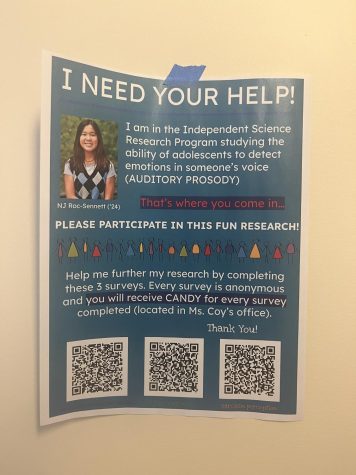
NJ hung up flyers around the Hackley Upper School in hopes of getting more survey responses for her IRP project. She has three surveys all regarding auditory prosody. Her surveys include tasks such as detecting sarcasm in one’s voice or detecting beeping noises.
“When I first applied to the IRP program, I thought that I would be in a lab working closely with science researchers and conducting more stereotypical experiments, but for me, since my project is so dependent on whether or not people actually do my surveys, I did not spend any time in a lab and most of my work has been advertising,” she said.
This has caused her to have to come up with different ways to promote her surveys, such as flyers and announcements at grade meetings. Because the survey is ten minutes long, people often do not do it because they do not realize the significance it has to her project and research. Acknowledging the struggle of getting people to complete her surveys, she said, “It kind of threw me for a loop.”
Regarding the impact her project has had thus far, she stated that it has impacted her because it taught her a lot about marketing and adapting to certain circumstances. Although she was not in a lab, she said she still got a lot of experience that she would not have thought about before.
In order for her to make progress without feeling overwhelmed, NJ likes to compartmentalize things. Rather than thinking that she does not have enough survey responses for her research to be relevant, she focuses on “breaking it down into sizable chunks,” and focusing on surveys that have fewer responses instead of trying to do everything at once.
NJ explained that even if her research does not have to do with a person, their participation greatly helps her, and every response matters.
“Taking that seven minutes to help may not seem like a lot but it really helps researchers a lot,” she said. No matter your connection to the topic of research such as schizophrenia, your participation is important for data collection.
Meeting her mentor in person last summer has been the coolest part of her research so far. She explained how she got to present a presentation to her mentor and his coworkers, and it was a great experience because she got to see what they were doing in their research and relate it to her research. This was a highlight for her because she got to visualize her work by seeing their work, and she also got to ask them questions she had regarding schizophrenia and auditory prosody.
What excites her most about her research is helping make a difference, and no matter how insignificant her research may feel at times, it really does help in getting a step closer in neuroscience research.

